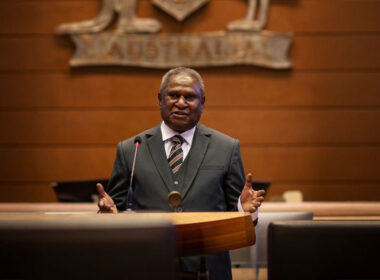An edited extract from Dr Gordon Hughes’ keynote address, “The role of law societies in a changing world”, delivered at the GL Sanghi Memorial Lecture in Colombo on 15 August 2016
1. Migration and refugees
In contrast to the global response to the plight of refugees following World War II, governments now focus their attention on devising ways to prevent refugees crossing their borders. Governments have a legitimate sovereign interest in regulating immigration and filtering immigrants, but there are also elements of xenophobia, racism, self-interest and populism driving government policy.
Concern for refugees and asylum seekers is not new to LAWASIA. In 2002, the council adopted a comprehensive set of principles on asylum seekers, but unfortunately we do not appear to have progressed much since that time.
2. Response to terrorism
Terrorism is not new, but the paradigm is shifting in the sense that ideologue terrorists are now having their platforms and their modus operandi hijacked by lone-wolf terrorists who adopt a cause without a history of commitment to it, and by ordinary criminals and sociopaths who simply have suicidal or homicidal tendencies that are acted out in a terrorist format.
The end result is, of course, the same, but the problem this presents to lawyers and law enforcement agencies is that it makes potential terrorists more difficult to profile, identify and monitor. The legal profession is uniquely placed to identify and articulate both sides of the argument and to guide our law makers across the region towards an appropriate response.
3. Religion
Religion often becomes the basis for discrimination and oppression, and therefore the basis for retaliation. Some terrorist activity is clearly religiously motivated. Because religion it is an emotive issue, there has been a reluctance by lawyers and law makers to comment, and by authorities to intervene against religious institutions and religious leaders who incite hatred and unrest.
Freedom of religion is a fundamental human right, yet the abuse, manipulation and misinterpretation of religious ideology can be the catalyst for the gross infringement of the human rights of others.
A balance between respect for religious beliefs and practices, and respect for those who do not share the same philosophies, has to be found.
3. Youth unemployment
Youth unemployment is a growing problem throughout the region. According to the International Labour Organization, half the young people in the Asia-Pacific region (those aged 15 to 24) are jobless. There is evidence that youth unemployment leads to a sense of restlessness, hopelessness and resentment, and from that a susceptibility of young people to indoctrination. There is a direct correlation between youth disillusionment and religious radicalisation.
It is not the role of the legal profession to solve unemployment. It is our role, however, to address the sources of discontent in society that may in turn contribute to a breakdown not only of the social fabric but, with it, the rule of law. If the profession can encourage debate about youth unemployment and the ways in which it can be addressed, we may contribute part of the solution to broader issues that pose a threat to the greater public wellbeing.
4. The wealth gap
A recent Credit-Suisse study revealed that the top 1 per cent of individuals now own 50.4 per cent of global wealth – that is, 1 per cent of the world’s population owns more than the remaining 99 per cent
put together.
The legal profession must remain alert to the implications, which are twofold from a legal perspective. First, wealth disparity is a source of discontent. With discontent comes resentment and, ultimately, rebellion. Rebellion poses a challenge to the rule of law. Second, so long as wealth disparity exists, access to justice will be skewed. The rich will be able to afford better legal representation. The poor will not even bother to assert their legal rights. The legal profession needs to be conscious of both cause and effect in this regard, and strive to find solutions to problems that increasingly will arise from disproportionate wealth distribution.



